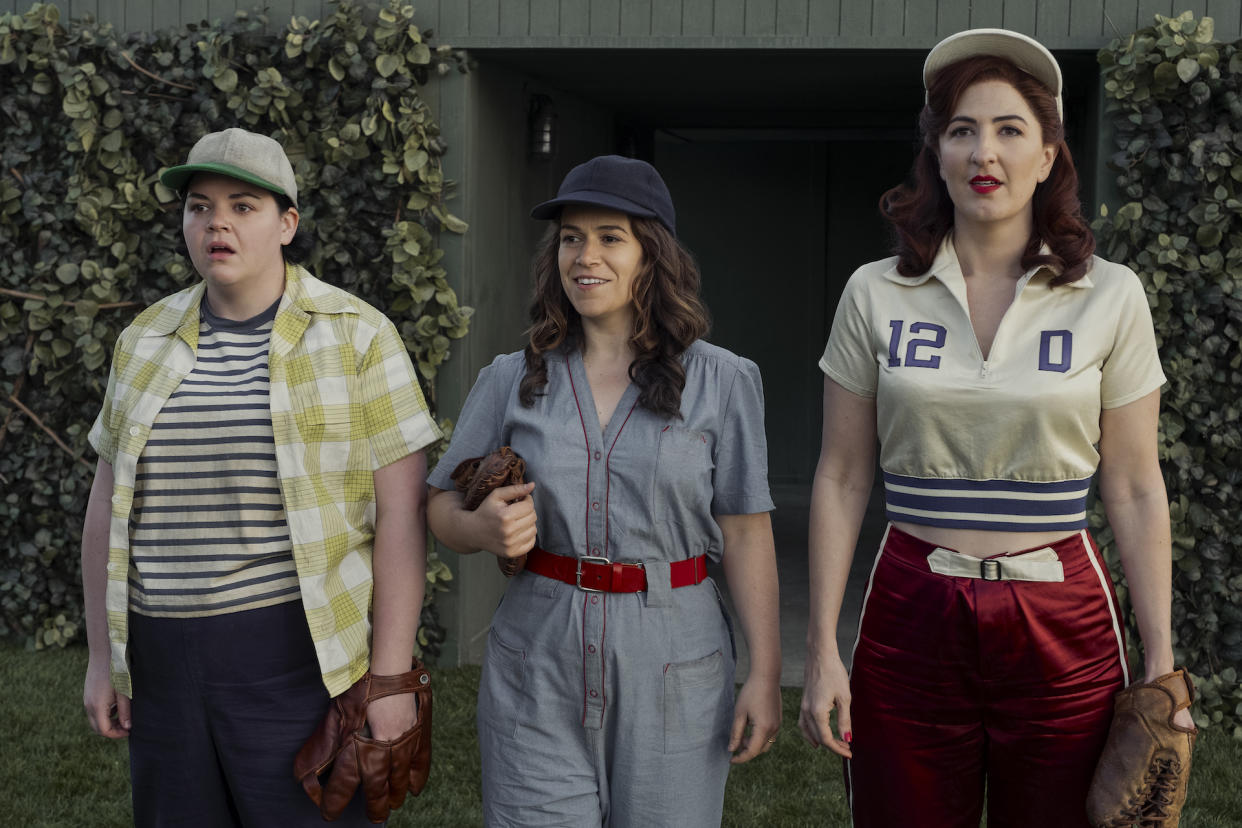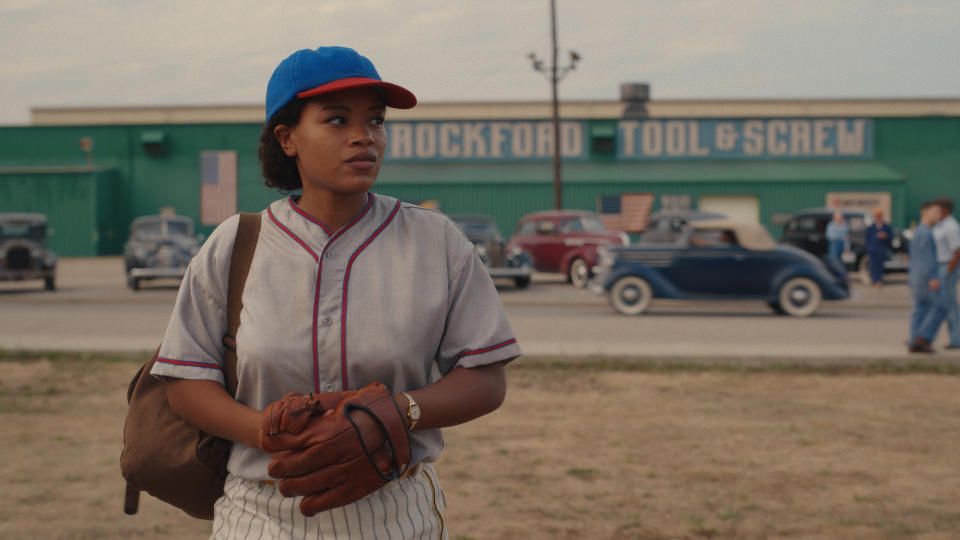‘League of Their Own’: ‘Queer People Didn’t Just Show Up at Stonewall; We’ve Been Around Forever’ Says Abbi Jacobson

Editor’s Note: This post contains spoilers for “A League of Their Own,” including the ending.
When Prime Video’s “A League of Their Own” finally said the 1992 film’s iconic “There’s no crying in baseball!” it doesn’t unfold the way you’d expect.
More from IndieWire
The line comes from Jess (Kelly McCormack), when Carson (Abbi Jacobson) buckles under the pressure of having to take over as coach for Dove (Nick Offerman). It’s one of many moments where Jacobson and co-creator Will Graham’s team of writers subvert Penny Marshall’s film and make it their own.
“Jimmy Dugan, what you love [about him] is that it’s a redemption story,” co-creator and star Jacobson told IndieWire over Zoom, citing Tom Hanks’ role in the film. “We’re in no way trying to take that character, but we’re also really subverting what the coach role from the film looks like in the show. In the [film], you grow to love him, and he loves them. We do not have a redemption story with Dove, and that was really important because this is the POV of the women on the team.”
One of the most obvious ways that the “League of Their Own” series is updated is with many and varied portrayals of queer women, including Jacobson’s own character. The film is never explicitly queer but Jacobson cites it as “iconically queer,” so she and Graham set about researching how to incorporate those stories.
“The more research we did about the time and about the league and about women playing baseball, the more we felt like there really were so many stories to be told, and a lot of them were about the queer experience,” she said. “It was so exciting to be able to tell such a wide range and scope of queer experience in 1943. Queer people didn’t just show up at Stonewall; we’ve been around forever and we thought it was very important to show the danger and the reality and the stakes of what it was to be queer, and what could happen if you were found out at the time — and the joy of what it was like to be queer and is like to be queer, and finding those communities.”
Outwardly, the women of the Rockford Peaches all perform their gender differently, from hyper-femme to comfortably butch. But in the 1940s, not all of that could make it onto the field. Both “League of Their Own” versions deal with charm school, a very real training program in the All American Girls Professional Baseball League to keep players palatable, nonthreatening, and conventionally feminine.
“They needed their women to present uber-femme and they had to wear makeup, and their posture and all was under like this male gaze,” Jacobson said. “Our show is very queer and just looking at it from that angle with the feminine presentation adds a whole other layer, when [that’s] not really in the film. It’s still very interesting the way they have to present, but we’re really diving deeper into what that presentation felt like and meant for the women, and a lot of ways in which that’s a mask.”

Courtesy of Prime Video
Though not on the Peaches, “A League of Their Own” further explores gender identity and performance with Max (Chanté Adams), who starts to embrace a more masculine presentation throughout the season after reconnected with her trans uncle Bertie (Lea Robinson).
Adams’ character is based on three women: Negro League players Toni Stone, Mamie Johnson, and Connie Morgan. Jacobson and Graham knew they wanted the show to be intersectional and that the All American Girls Professional Baseball League, for all its merits, was a door closed to women like Max.
“Max never, never wants to be on the Peaches after that tryout,” Jacobson said. “That’s just reality. That’s just historical fact. We’re not in any way rewriting history, we’re showing: What would someone like Max Chapman, who is this incredible baseball player — what is her trajectory to finding her team?”
Over the course of eight episodes, Max proves adept and resourceful when it comes to forging her own path and keeping baseball in her life, as well as finding comfort in her sexuality and gender performance. She forms an unexpected bond with Jacobson’s Carson despite never playing together for the Peaches.
“Her connection to Carson is really important,” Jacobson said. “They’re bound by baseball, but they’re sort of each other’s queer community for a while until they end up finding more of their queer community. We thought that relationship was so important, but Max is never never looking back. Really. She’s not gonna try to get on the Peaches. It felt just essential to not have that.”
“A League of Their Own” is now streaming on Prime Video.
Best of IndieWire
‘The Lord of the Rings’: Everything You Need to Know About Amazon’s Big Money Adaptation
Charlie Cox and Vincent D'Onofrio Set to Reprise 'Daredevil' Roles for Marvel Series 'Echo'
'The Last of Us': Everything You Need to Know About HBO's Adaptation
Sign up for Indiewire's Newsletter. For the latest news, follow us on Facebook, Twitter, and Instagram.

 Yahoo News
Yahoo News 
